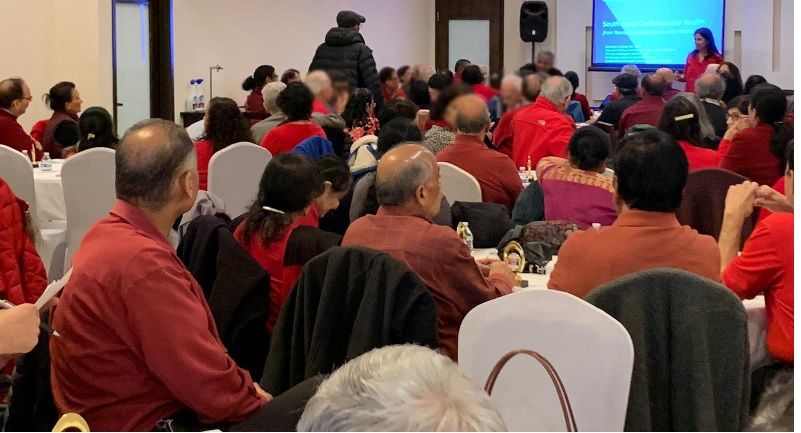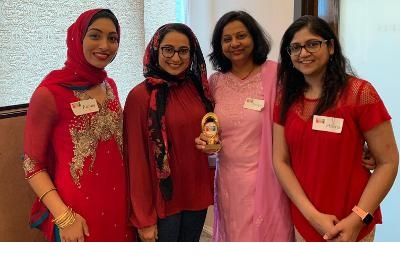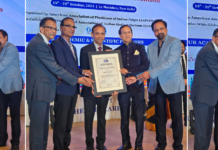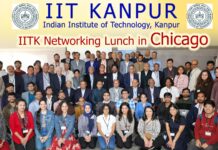Adela Mizrachi
CHICAGO: Close to 120 attendees gathered in Naperville, a Chicago suburb, to celebrate the 10-year anniversary of the Mediators of Atherosclerosis in South Asians Living in America (MASALA) Study. The MASALA Study is the first longitudinal cohort study to investigate novel and traditional risk factors that contribute to disparities in heart disease and diabetes in South Asian Americans.
The luncheon event recognized the 1,164 participants who were part of the MASALA study over the last 10 years – a true collaboration between researchers and the community. Each of the 118 attendees was honored with a trophy and had an opportunity to reflect on how the MASALA study has impacted them.
 NamrathaKandula, MD, MPH, co-principal investigator on the study and co-director of IPHAM’s Center for Community Health, also presented on the accomplishments from the last decade.
NamrathaKandula, MD, MPH, co-principal investigator on the study and co-director of IPHAM’s Center for Community Health, also presented on the accomplishments from the last decade.
“The MASALA study has changed the way we understand cardiovascular disease (CVD) risk in Asian American populations and has made important contributions to clinical and public health prevention guidelines in the U.S,” said Abdula. “It has also been very meaningful to the South Asian community, whose health issues have often been overlooked.”Data from the MASALA study has provided new insights into the health and well being of South Asian Americans the second fastest-growing minority group in the US.
In 2018, the American Heart Association and American College of Cardiology CVD prevention guidelines recognized that South Asian ethnicity may be a risk-enhancing factor for CVD and should be part of patient-provider discussions around CVD prevention.
“I am most proud of the connections we have with our study participants—connections that are built on values of community-engagement, including respect, mutual benefit, and equity,” Kandula said. Participant responses included ‘Visible,’ ‘Protected,’ ‘Healthy,’ and ‘Informed.’
This is very powerful because South Asian and Asian American immigrants have traditionally been thought of as a “model minority” without any health issues and have been excluded from research studies. I am extremely proud of the ways our team has been able to meaningfully involve the community in our research to advance health equity.”While 10 years is quite a milestone, Kandula says that in some ways, MASALA is just getting started.
The team will continue to follow the MASALA cohort to understand how the rich clinical, behavioural, social, and cultural data that has been collected is associated with longitudinal CVD outcomes, such as risk for heart attack and stroke.
Finally, the team will be working with a team of researchers to undertake the genetic sequencing of the MASALA study DNA samples. This is an exciting opportunity to start understanding the underlying genetic architecture of CVD risk and outcomes in South Asians.







